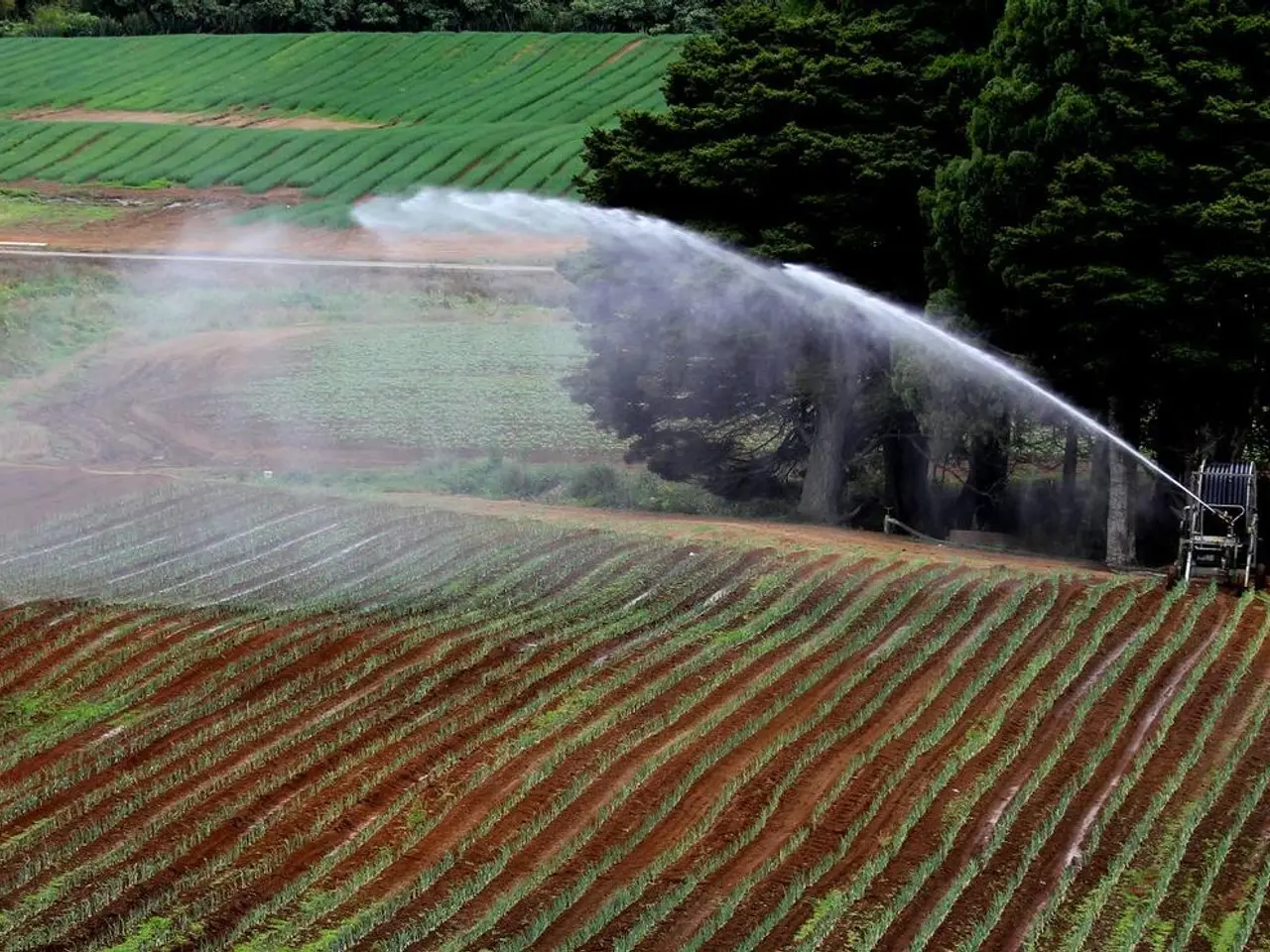Forecasted Scorching Temperatures Pose Threat to Wheat Crops in India, According to Meteorological Department Following the Country's Hottest February on Record Since 1901
India is bracing for another round of heatwaves, with experts warning that the consecutive occurrence could hinder efforts to reduce food inflation in the country. This comes after last year's heatwave, which was the hottest and driest in over a century, leading to water shortages, an economic slowdown, and significant impacts on agriculture.
The Indian Meteorological Department has predicted intense heatwaves in India's key wheat-producing central and northwestern states from March to May. The country experienced its worst power crisis in more than six years due to a coal shortage, and the high temperatures are expected to increase power consumption, potentially affecting energy supplies. In April 2022, power demand in Northern areas increased up to 75%.
Last year, temperatures during the heatwave were consistently 3-8C above average, and in some areas, surface land temperatures reached as high as 60C. Thousands of Indians were unable to work due to the extreme heat, and critical services such as hospitals were threatened by blackouts. Millions of people were left without power for up to nine hours a day.
A study suggests that last year's heatwave was 30 to 100 times more likely due to human-induced climate change. The Intergovernmental Panel on Climate Change (IPCC) has warned that intense heatwaves will become more frequent and severe. The heatwaves could potentially compromise wheat, rapeseed, and chickpeas production, posing a significant threat to food security and inflation.
To cope with the increased demand, the government expanded coal production by 10%. However, the heatwaves are not just a threat to the energy sector but also to agriculture, which is a crucial part of India's economy. To address this, the "Liebig Centre for Agroecology and Climate Impact Research" was established as a cooperation center focused on agroecology and climate impact. This centre uses isotopic methods to promote sustainable agriculture, increase yields, and support adaptation to climate change, working globally including India.
As the country prepares for another round of heatwaves, it is crucial to implement measures that promote sustainable agriculture and energy consumption to minimise the impact on food inflation and energy supplies. The warning comes after India recorded its hottest February since 1901, and the IPCC's prediction of more frequent and severe heatwaves underscores the urgency for action.
Read also:
- Nightly sweat episodes linked to GERD: Crucial insights explained
- Antitussives: List of Examples, Functions, Adverse Reactions, and Additional Details
- Asthma Diagnosis: Exploring FeNO Tests and Related Treatments
- Unfortunate Financial Disarray for a Family from California After an Expensive Emergency Room Visit with Their Burned Infant








